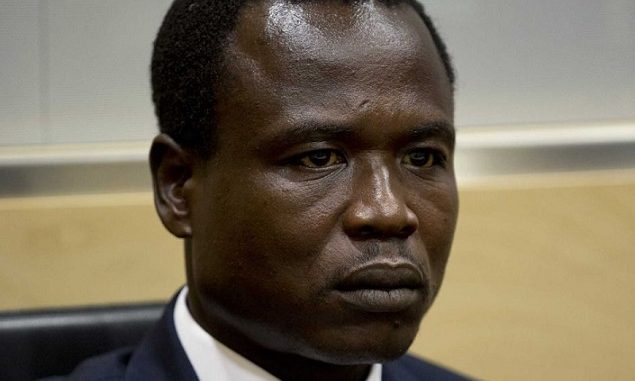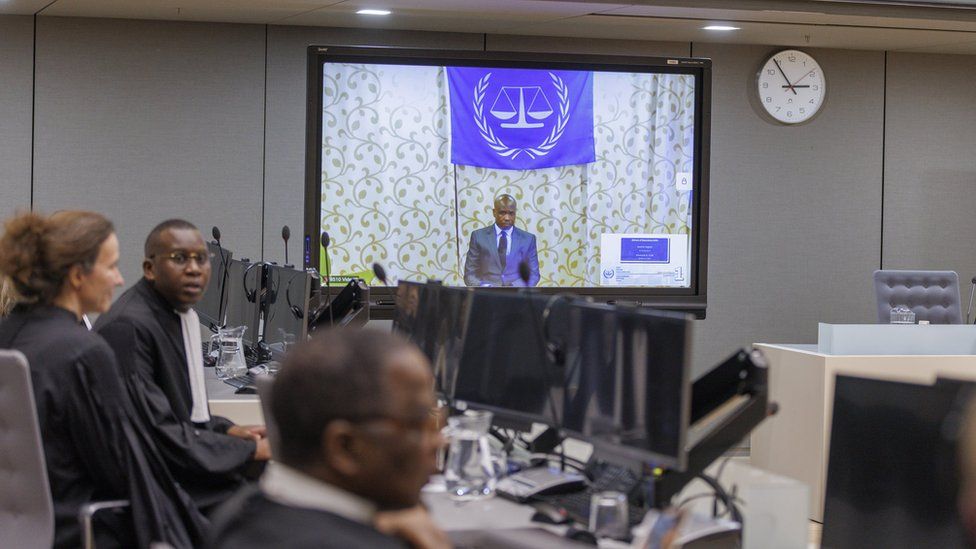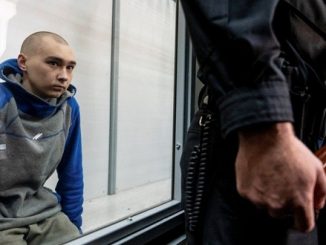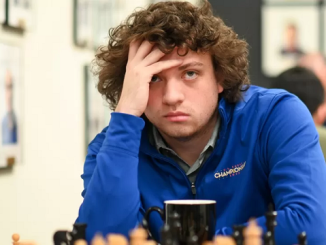
Victims of Ugandan warlord Dominic Ongwen have been awarded more than €52m ($56m; £44.5m) by the International Criminal Court (ICC).
The order covers almost 50,000 people, including former child soldiers and children born out of rapes and forced marriages.
Ongwen was a ruthless rebel commander in the Lord’s Resistance Army (LRA).
He is currently serving a 25-year prison term in Norway for multiple war crimes and crimes against humanity.
He was originally abducted as a child and forced to join the LRA but went on to become one of the leaders of the notorious rebel group. During his trial, his argument that he should also be treated as a victim was rejected by the court.
The crimes were committed by his rebel fighters in northern Uganda in the early 2000s.
Warning: This story contains details that some people may find upsetting
As part of the extensive compensation package, everyone who suffered, directly or otherwise, as a result of what Presiding Judge Bertram Schmitt described as Ongwen’s “unimaginable atrocities” will be awarded €750 ($812; £642).
Judge Schmitt described physical, moral, material, community and transgenerational harm, and explained the remainder of the $56m would constitute collective reparations, to be invested in projects designed to rehabilitate and rebuild broken lives.
The LRA was formed in the late 1980s in Uganda, where it said its goal was to install a government based on the biblical Ten Commandments.
It was eventually forced out of the country in 2005.
As a reminder of the many ways in which communities were affected by the LRA, an extensive list of the ruthless acts committed by Ongwen was read out during the hearing.

These included a catalogue of harrowing sexual and gender-based crimes that came to characterise Ongwen’s campaign of terror.
Judge Schmitt recounted that soldiers had raped a woman with a stick used for cooking while her husband was forced to watch, babies were thrown into bushes and left to perish because their crying made it hard for new mothers to carry looted goods, women and girls were “distributed” to soldiers and kept as sexual slaves – many forced to bear children after rape or forced marriage.
Children kidnapped and trained to be child soldiers were also among the victims – some were forced to kill others, as lessons to anyone who considered attempting to escape.
“Tens of thousands of individuals suffered tremendous harm due to the unimaginable atrocities committed,” as rebel fighters led by Ongwen attacked four camps for displaced people in northern Uganda, said Judge Schmitt.
Entire communities and families witnessed the attacks, after which people had to walk through villages strewn with dead bodies.
The court acknowledged it would take time before any payments were actually distributed and that not all victims would receive the amount at the same time – priority would be given to the most vulnerable people with the greatest need.
Ongwen has been declared indigent so the money will come from the Trust Fund for Victims.
The trust relies on voluntary contributions from ICC member states and to a lesser extent other public and private donors.
The trust’s mandate is to fulfil reparation orders and provide victims with physical and psychosocial rehabilitation or support.
During the hearing, the judge said the trust didn’t currently have enough to cover the full $56m reparations, and urged countries, organisations, corporations and private individuals to step up and support its mission.
A compensation plan must be submitted to the ICC by September 2024.
The ICC, located in the Dutch city of The Hague, was set up to prosecute war crimes and crimes of humanity and genocide.
The ICC believes reparations symbolise and promote hope and resilience within war-ravaged communities and serve as evidence of the court’s commitment to restorative justice.
Source: bbc.co,uk






Be the first to comment